US Election 2016: Markets meltdown fails to materialise
- Published
- comments
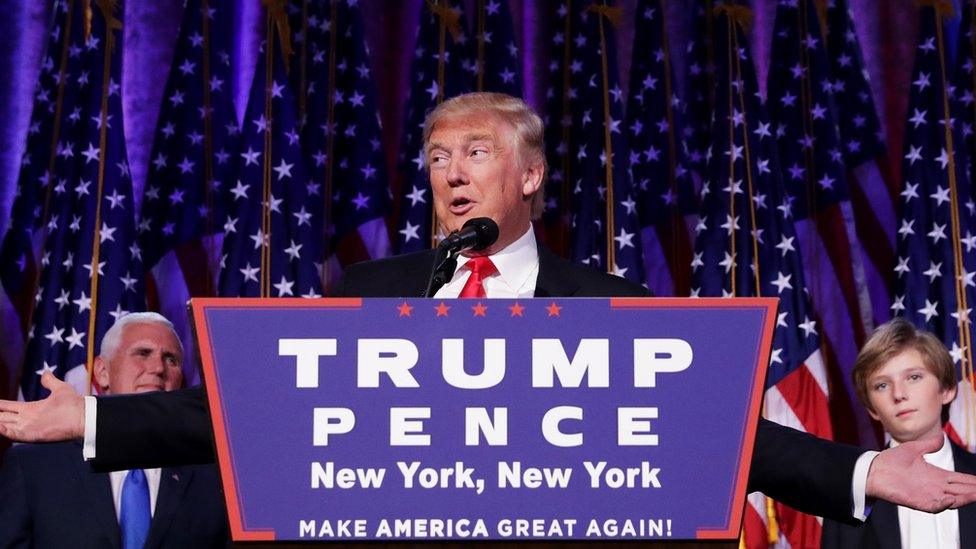
US share markets have risen strongly shrugging off fears that a Donald Trump election victory could lead to a large Wall Street sell-off.
The Dow Jones, S&P 500 and Nasdaq indexes all rallied robustly during the day and closed more than 1% higher.
The pre-open future markets forecasted dramatic sell-offs when Donald Trump's lead became clear overnight.
Share traders had expected Hillary Clinton to beat Mr Trump to become the next US president.
His victory initially sent money flowing into safe haven stocks, gold and currencies including the yen, but as the day has gone on global markets have recovered.
The Dow Jones ended the day up by 1.4% at 18,589.69. The S&P 500 was 1.11% higher at 2,163.26 and the Nasdaq was also up by 1.11% at 5,251.07.
In London the FTSE 100 index dropped 2% at the start of trading before recovering to end the day 1% up.
France's Cac index and Germany's Dax both closed about 1.5% higher after erasing losses of more than 2%.
Follow the BBC's live page for more election coverage
Business Live: Markets muted after Trump win
Five questions on the economy for President Trump
President Trump: All hat, now where are the cattle?
UK businesses react to Trump's win
Some analysts had likened the shock of a Trump victory to the Brexit result earlier this year.
However, neither markets nor currencies have swung as wildly as they did after June's EU referendum.
Markets rebound
The dollar has regained ground it lost earlier. Although it is still down against the pound, it is now up against both the euro and the yen.
US stock futures fell dramatically overnight when Mr Trump won key swing states, with traders at one point forecasting the Dow Jones to lose 4% or 800 points.
The sell-off hit Asian share markets, leading to them being described as a "sea of red" in early trading, before seeing their losses narrow.
Japan's Nikkei 225 finished 5.4% lower, but the Hang Seng in Hong Kong and the Shanghai Composite - which closed later - lost 2.2% and 0.6% respectively.


Analysis: Kamal Ahmed, Economics Editor
It's been a "risk off" day.
Buy into safe haven currencies like the Japanese yen and the Swiss franc (both up today); buy into gold (the ultimate save haven harbour); sell the obvious (the Mexican peso has taken a battering).
But, trading volumes are average, the FTSE 100 is calm and there has been no rush to the stock market exit doors.
After the turmoil of Brexit, this has not been a "plus, plus, plus" day in terms of volatility.
So far, this is Brexit minus.
Investors are in wait and see mode.

Kathleen Brooks, an analyst at City Index, said markets were calming down after the initial shock. "This suggests that a win for President Trump is not yet America's Brexit moment. US Treasuries have reversed earlier gains, and yields are rising."
She suggested Mr Trump's acceptance speech, in which he called for the country to unite, helped to settle some of the market jitters.
The biggest winners on the FTSE 100 were pharmaceutical firms, defence and mining companies, while banks and retailers were among the losers.
"What you're seeing is healthcare companies which had been threatened by some of Hillary Clinton's policies actually recovering quite strongly," Ben Ritchie, senior fund manager at Aberdeen Asset Management, told the BBC.
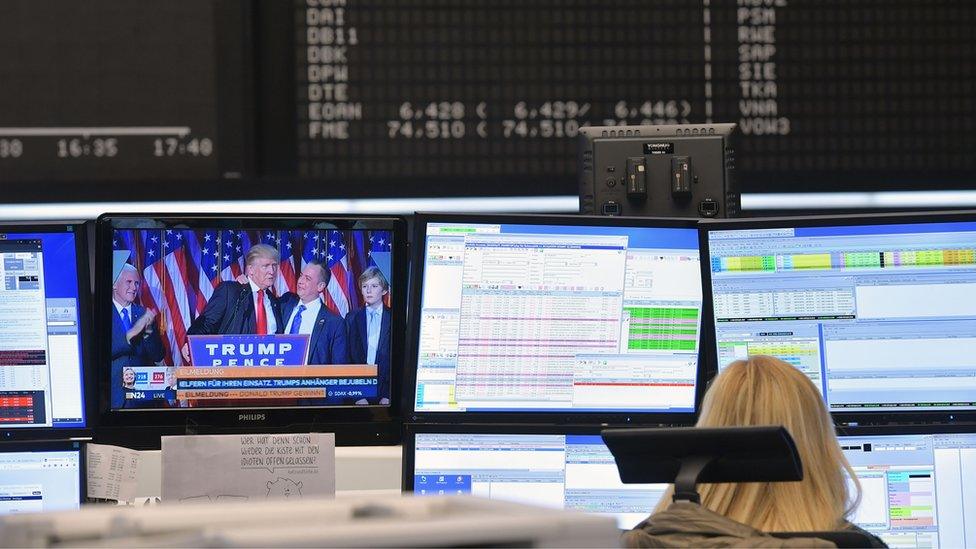
Arms makers stand to gain from Mr Trump's proposals to increase defence spending, analysts said.
Gold initially jumped 5% - the biggest one-day rise since after the UK's Brexit vote - before falling back to more modest gains.
Meanwhile, concerns about the impact of a Trump presidency on the Mexican economy saw its currency, the peso, fall more than 13% overnight against the dollar to its lowest level in two decades. It has since pulled that back slightly to an 8% loss.
Mexico is expected to suffer from a Trump presidency because of his pledges to build a wall along the US border with the country and renegotiate the two nations' trade agreement.
- Published4 November 2016
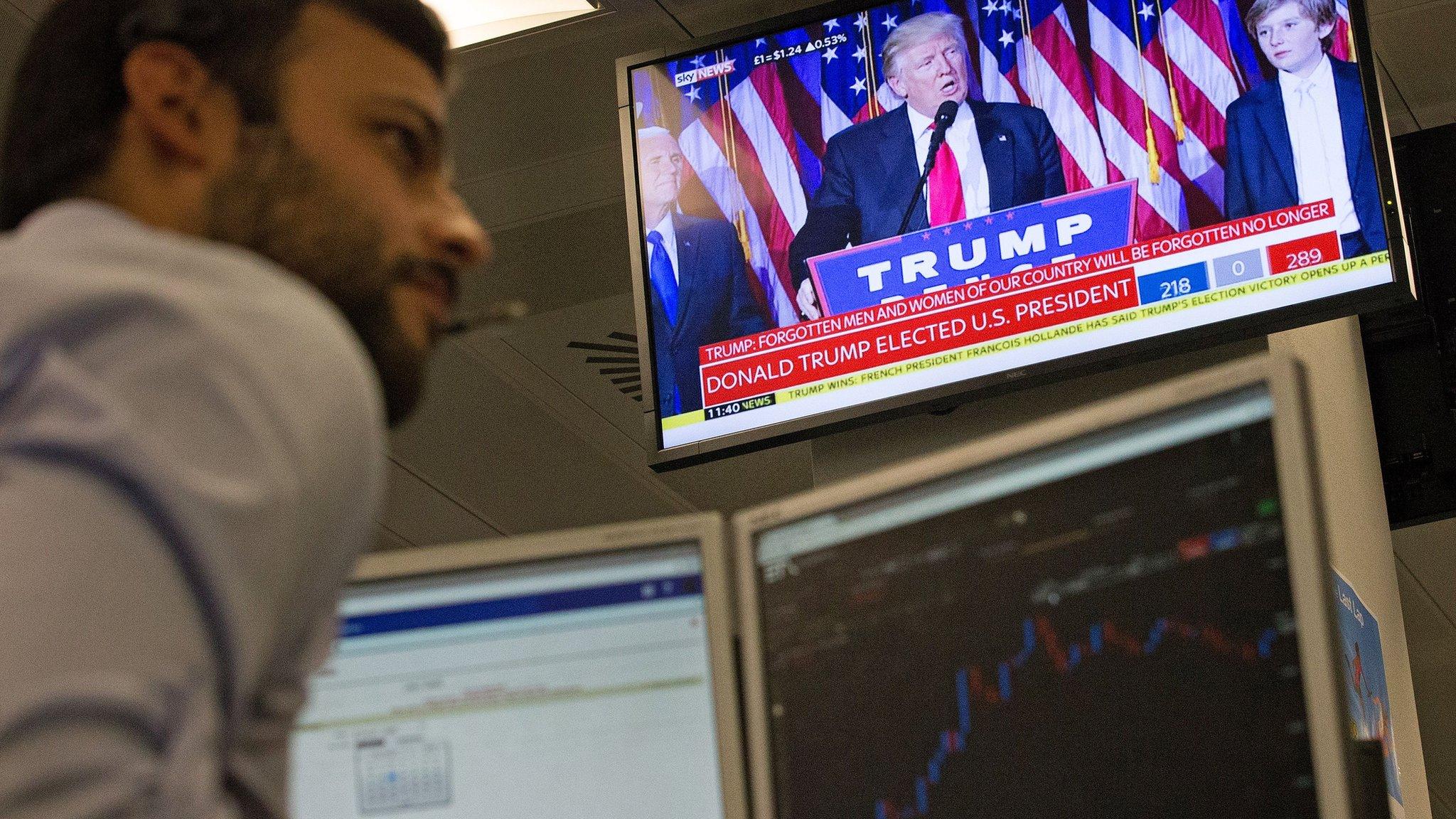
- Published9 November 2016
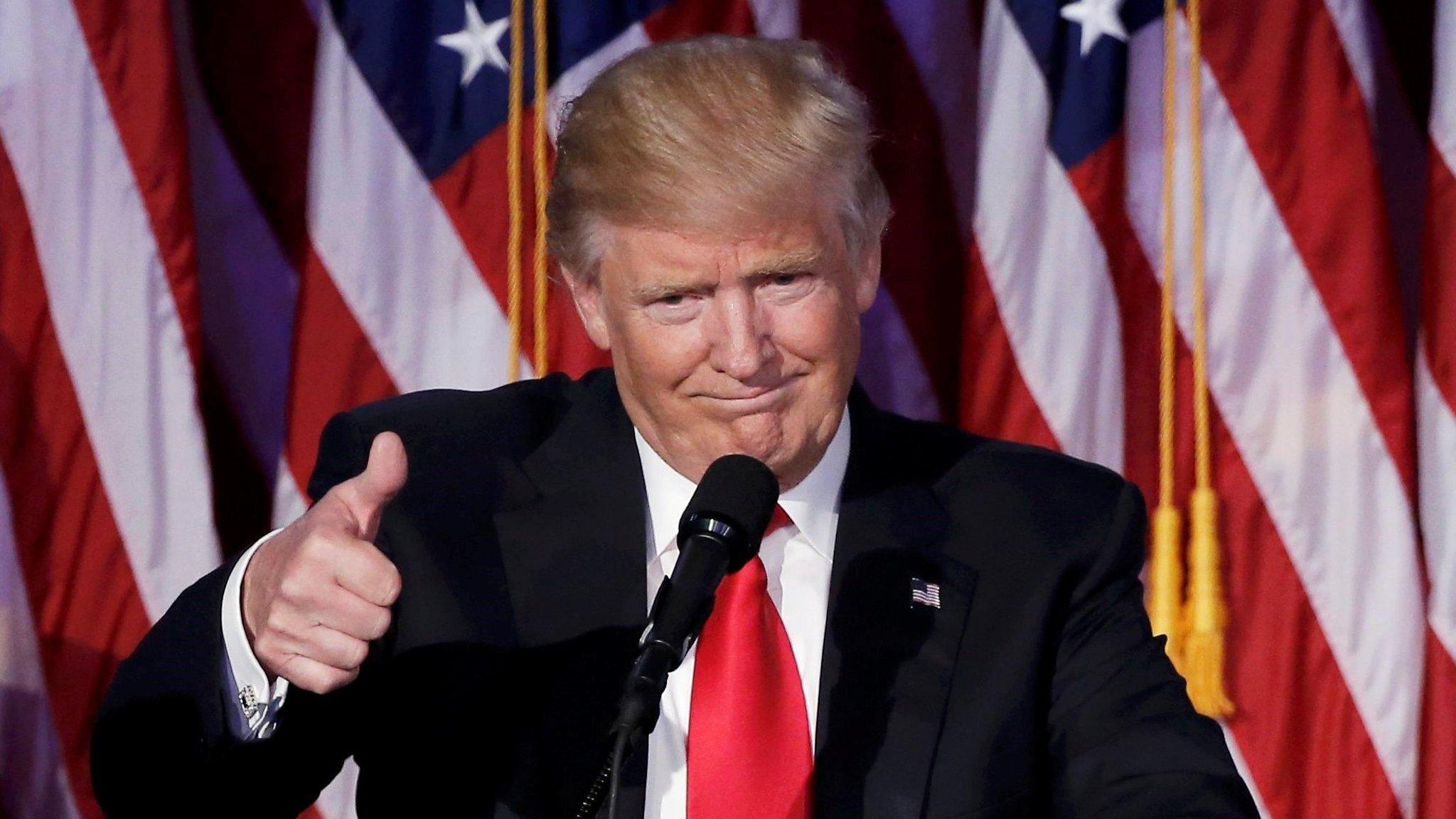
- Published9 November 2016
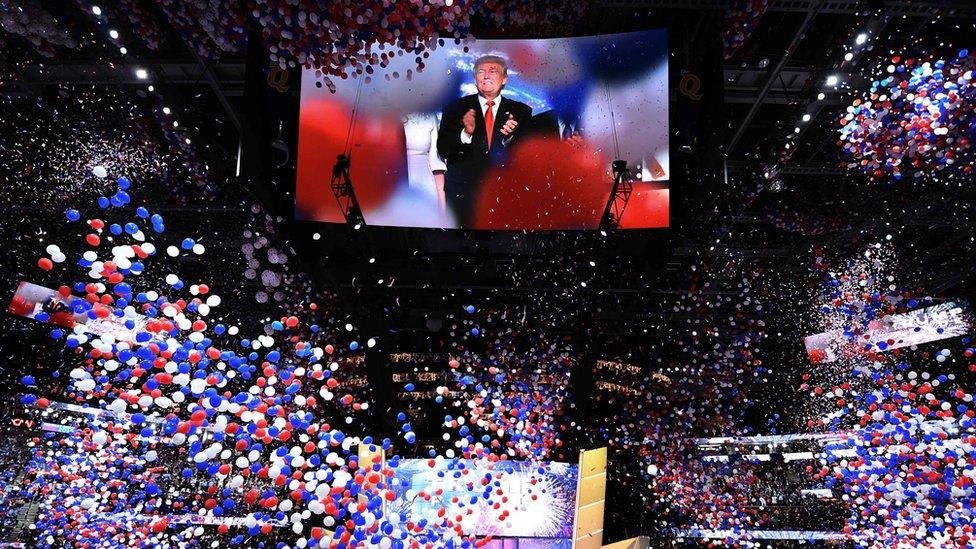
- Published9 November 2016
- Published9 November 2016